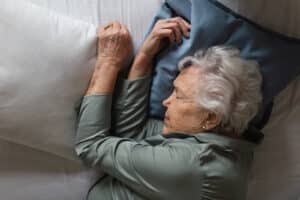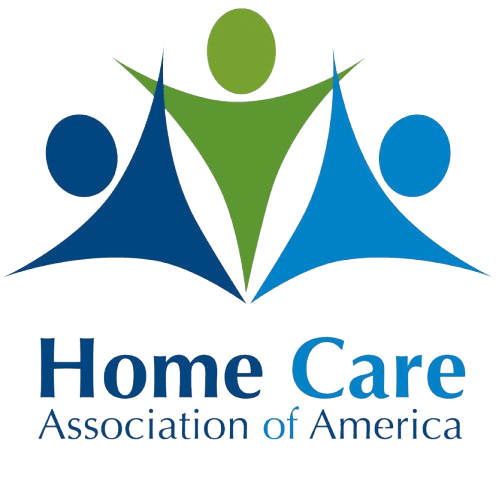
Have you heard about sleep hygiene? No, it’s not about making sure your pajamas are freshly washed. Sleep hygiene refers to both sleep habits and a person’s daily habits that lead to a good night’s sleep. It’s about setting yourself up during the day with healthy, regular habits so that sleep will come more easily at night. Reviewing and adjusting sleep hygiene can help your elderly loved one start to sleep better at night.
Why Seniors Struggle with Sleep
Seniors need just as much sleep as any adult, but they often struggle to get a good night’s sleep. Some health conditions and simple aging can make sleep a bit more of a struggle in later years.
- Insomnia. Insomnia is the inability to either fall asleep or stay asleep. This condition will rob a person of a good night’s sleep and is one of the most common sleep issues the elderly have.
- Needing to urinate. Nighttime urination needs, or nocturia, increase as a person ages. It’s often caused by changes in the urinary system and can cause a person to get up several times during the night to use the bathroom.
- Pain. Many seniors suffer from chronic pain. Multiple sources of pain may keep your senior awake if she doesn’t find a way to manage her pain levels both during the day and at night.
- Sleep Apnea. Sleep apnea occurs when there are pauses in breathing as a person sleeps. These pauses can lead to interrupted sleep as well as affect the oxygen levels getting to the brain.
How Should Seniors Practice Better Sleep Hygiene?
There are four main areas for cultivating sleep hygiene. If your loved one has bad sleep habits, you might want to help her tackle one at a time, and then when that one area has improvements, move on to the next area. A lifetime of bad sleep habits will not change overnight but will take consistent focus on making positive changes. Because changing any lifetime habits can be tough for anyone, enlisting family and home care assistance providers to help can be key to your loved one’s success.
- Create Healthy Daytime Habits. Implementing positive daily routines will support your loved one’s circadian rhythm and help to reduce sleep interruptions once she’s in bed. Important steps in this area of sleep hygiene include daily exercise, getting outdoors, reducing caffeine intake later in the day, and not spending daylight hours physically in bed. A home care assistance team can help her stick to these healthy habits during the day.
- Make a Bedroom Made For Sleep. While having a comfortable bed with her favorite pillows and blankets helps, consider other parts of the bedroom as well. Turning down the temperature at night, reducing noise and light, as well as using calming scents can all create a haven for sleep.
- Keep a Consistent Sleep Schedule. Your loved one should strive to get up at the same time each day so her body will want to sleep at the same time each night. She should also consider keeping naps to a minimum and never in the evening. She can have her home care assistance provider set her alarm each night if she has problems getting up on her own.
- Develop a bedtime routine. Creating a pre-bedtime routine helps the brain shift into sleep mode more easily.
Your loved one will be delighted to discover how much better she feels overall when she improves her sleep hygiene.
If you or an aging loved one is considering home care assistance in Turlock, CA, please contact the caring staff at Provident Care Home Care today at (209) 578-1210.



